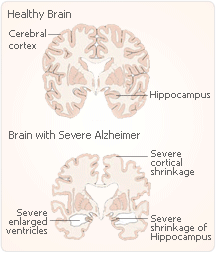
A great deal of older women are affected by cognitive impairment, a widespread and often debilitating medical problem. Many scientists have linked postmenopausal hormone therapy (HT), with improved cognitive function, but the findings on this are inconclusive. For many women, hormone therapy is an ideal way to combat the various uncomfortable menopause symptoms. Yet, with research associating hormone therapy with increased risk of cardiovascular disease, the decision to take hormone therapy is a difficult one. The study outlined below aimed to establish hormone therapy's role in the risk of cognitive impairment so that women can factor this into the decision-making process. Scientific trials have shown that women who already have Alzheimer's disease do not benefit from hormone therapy as a treatment for post menopause symptoms. However, observational studies report that healthy women may lower their risk of Alzheimer's with hormone therapy, especially if they use it for 10 years or more. Though, the research detailed in this article does not support such theories. The study described here entailed a large population-based group of females and it found no difference in the effect of hormone therapy on Alzheimer's between women older and younger than 65 years. Though, as the sample was fairly young, participants may need to be followed for greater periods of time to verify any effect of hormone therapy for post menopause symptoms on Alzheimer disease diagnosis.

There were clear differences between distinct groups of women from the sample using hormone therapy for post menopause symptoms. First of all, it was found that young women with menopausal symptoms were likely to have improved cognition and mood when using hormone therapy. No interaction was found between hormone therapy use to relieve post menopause symptoms and education. This study also discovered that there was no major connection between hormone therapy use for post menopause symptoms and impaired cognition after taking both age and education into consideration. These two issues are the strongest predictors of impaired cognition. Moreover, no difference was found between different types of hormone therapy for dealing with post menopause symptoms, including unopposed estrogen and estrogen-progestin. It is clear that age and educational history are key covariates in this research. No link was established between cognitive impairment and past hormone therapy use or duration of hormone therapy use. These findings steadily showed no considerable benefit of hormone therapy. Considering the various potential risks of hormone therapy, this particular study does not encourage the use of hormone therapy solely with the objective of preventing cognitive impairment.